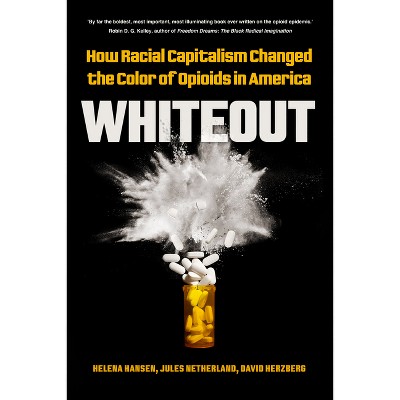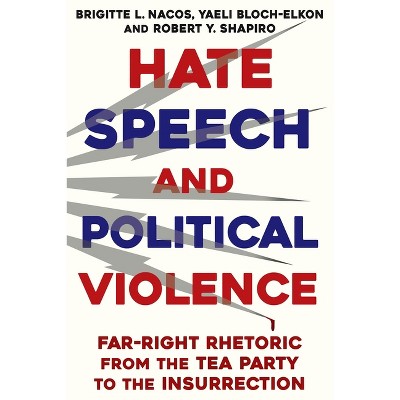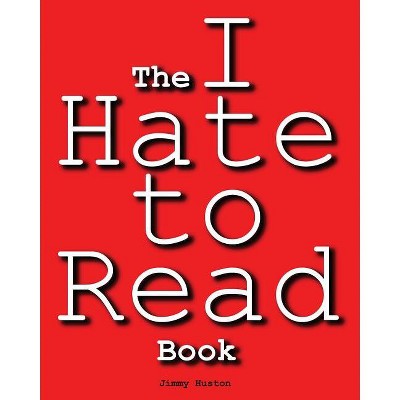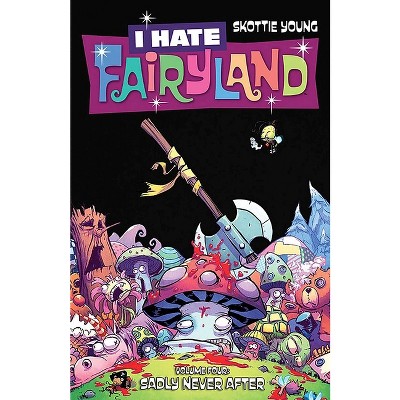Sponsored

Hidden Hate - by Mathew Creighton
$140.00
In Stock
Eligible for registries and wish lists
Sponsored
About this item
Highlights
- Opposition to immigration has fueled a spate of populist movements in the United States and Europe.
- About the Author: Mathew Creighton is associate professor in the School of Sociology at University College Dublin, fellow of the UCD Geary Institute for Public Policy, and a visiting professor at Boğaziçi University.
- 272 Pages
- Social Science, Discrimination & Race Relations
Description
About the Book
Mathew Creighton develops a new model for understanding xenophobia by shining a light on the layers of intolerance concealed beneath the surface.Book Synopsis
Opposition to immigration has fueled a spate of populist movements in the United States and Europe. The potency of xenophobic politics is often explained in terms of factors such as economic insecurity, material competition, group identity, cultural conflicts, and social changes. These explanations have proven to be inadequate, particularly in often affluent and pluralistic contexts with relatively low levels of unemployment and poverty. How can these seemingly tolerant societies harbor intense antipathy toward migrants?
Mathew Creighton develops a new model for understanding xenophobia by shining a light on the layers of intolerance concealed beneath the surface. Drawing on rich empirical evidence from innovative survey experiments conducted in the United States, the United Kingdom, Ireland, Norway, and the Netherlands, he argues that prejudice is often present but intentionally and strategically hidden. What can change, however, are the norms that govern the social acceptability of xenophobia. When the public expression of previously impermissible beliefs is pursued by politicians and society more broadly, the stigma of open intolerance lifts to reveal the true face of this once-masked xenophobia. Creighton challenges the assumption that overt anti-immigrant sentiment is mostly attributable to economic or social crises, showing that this narrative overlooks a substantial and largely stable reservoir of intolerance. Deeply researched, comparative, and generative, Hidden Hate provides timely and vital insight into the persistence of xenophobia.Review Quotes
An important work. By highlighting the lack of validity of direct measures of xenophobia, it calls into question much of what we think we knew about the explanation of individual and aggregate levels and trends in xenophobia in economically advanced democracies, provides a useful methodology to address the problem, and proposes useful and original policy ideas to limit discrimination.-- "European Journal of Sociology"
Highly recommended reading. Those interested in migration studies, postcolonial and critical race studies, critical whiteness studies, political science, studies of nationalism, political theory, discourse and semiotic analysis, and media studies, will find it particularly useful. However, it can be just as useful for journalists, policymakers, stakeholders, NGOs, human rights activists, intellectual circles, and book clubs generally interested in migration, minority rights, whiteness, racism, identity, equity, diversity, and inclusivity.-- "Nationalism and Ethnic Politics"
Creighton's work uncovers the motives for xenophobic expression and shows that the key mechanism for regulating xenophobia is social stigma...Recommended.-- "Choice"
Hidden Hate is an outstanding book on contemporary xenophobia and xenophobes. It shows that xenophobe beliefs are strategic: they can be hidden or out in the open, and they depend on the context. This book is unmatched in its deep sociological thinking about xenophobia, and it deserves serious attention from social scientists, policy makers, and many others.--Katharine M. Donato, coauthor of Gender and International Migration: From the Slavery Era to the Global Age
Mathew Creighton has written a wonderful and potent book on the ways in which xenophobia and stigmatization pervade modern societies. He carefully unpacks how context-specific factors shape the ways xenophobia is covertly or overtly expressed and sanctioned by political elites and institutions. Anyone interested in the persistence of the marginalization of minority groups must read this book.--Amaney A. Jamal, author of Of Empires and Citizens: Pro-American Democracy or No Democracy at All?
Mathew Creighton's innovative analysis of the xenophobe and xenophobia is both theoretically and empirically rich. He skillfully investigates anti-immigrant attitudes in Ireland, the Netherlands, Norway, the United Kingdom, and the United States, parsing their overt and covert dimensions. This is sociology at its finest.--Edward Telles, coauthor of The Trump Paradox: Migration, Trade, and Racial Politics in US-Mexico Integration
This brilliant book discusses the challenges of measuring xenophobia in contemporary Western societies. While the open expression of xenophobic feelings and attitudes is generally frowned upon in liberal societies, this does not mean that xenophobia has vanished. In many cases it has just become more difficult to observe directly. Creighton presents innovative, methodologically rigorous ways to measure xenophobia and discusses the importance of social context for its overt and covert expression. A must-read for any student of attitudes toward minorities.--Zan Strabac, Norwegian University of Science and Technology
About the Author
Mathew Creighton is associate professor in the School of Sociology at University College Dublin, fellow of the UCD Geary Institute for Public Policy, and a visiting professor at Boğaziçi University. He is a national coordinator of the European Social Survey in Ireland and the principal investigator of a Horizon Europe project, EqualStrength, which assesses prejudice in work, childcare, and housing throughout Europe.Dimensions (Overall): 8.5 Inches (H) x 5.5 Inches (W) x .75 Inches (D)
Weight: 1.09 Pounds
Suggested Age: 22 Years and Up
Number of Pages: 272
Genre: Social Science
Sub-Genre: Discrimination & Race Relations
Publisher: Columbia University Press
Format: Hardcover
Author: Mathew Creighton
Language: English
Street Date: December 19, 2023
TCIN: 89954302
UPC: 9780231203166
Item Number (DPCI): 247-07-6534
Origin: Made in the USA or Imported
If the item details aren’t accurate or complete, we want to know about it.
Shipping details
Estimated ship dimensions: 0.75 inches length x 5.5 inches width x 8.5 inches height
Estimated ship weight: 1.09 pounds
We regret that this item cannot be shipped to PO Boxes.
This item cannot be shipped to the following locations: American Samoa (see also separate entry under AS), Guam (see also separate entry under GU), Northern Mariana Islands, Puerto Rico (see also separate entry under PR), United States Minor Outlying Islands, Virgin Islands, U.S., APO/FPO
Return details
This item can be returned to any Target store or Target.com.
This item must be returned within 90 days of the date it was purchased in store, shipped, delivered by a Shipt shopper, or made ready for pickup.
See the return policy for complete information.
Frequently bought together
Trending Non-Fiction


Discover more options

$14.20
was $15.79 New lower price
5 out of 5 stars with 4 ratings














